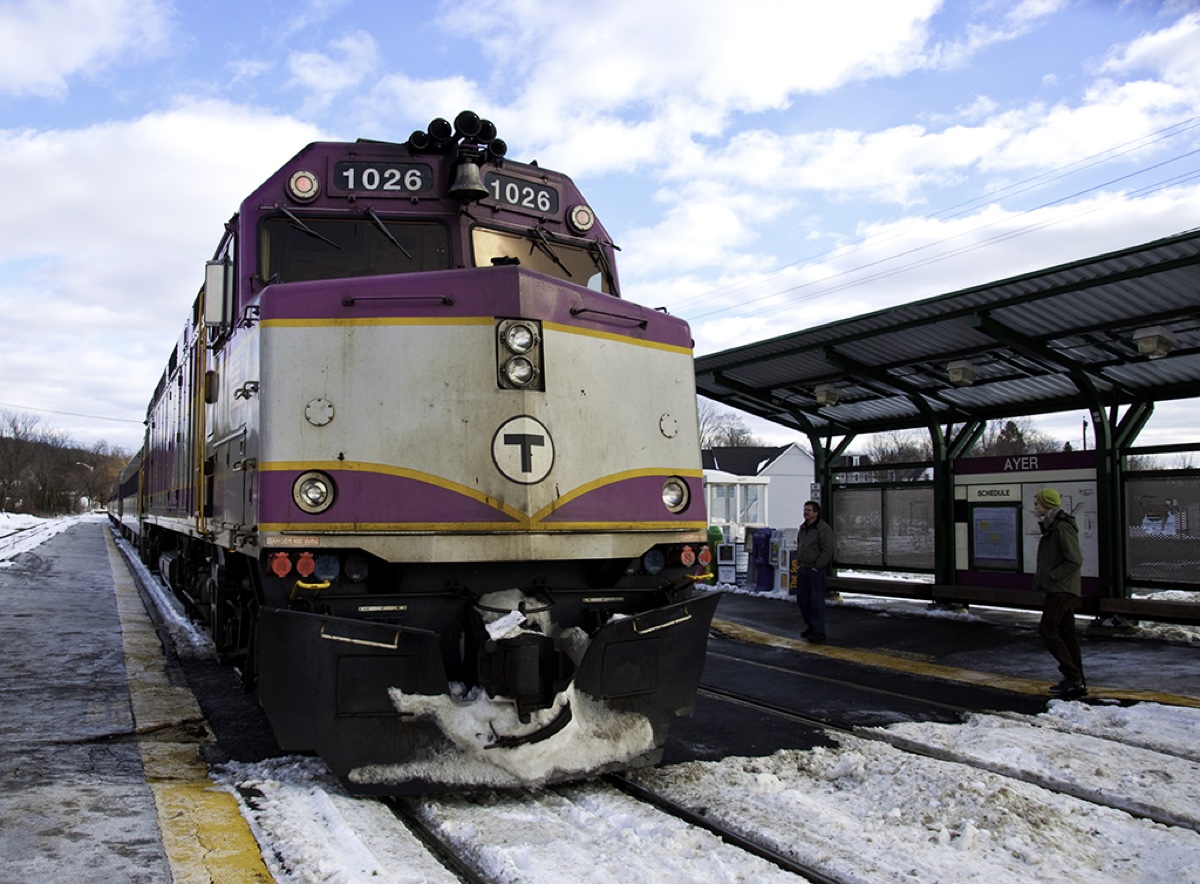The MBTA Could Dump Keolis

Photo by matthrono on Flickr/Creative Commons
When Keolis’ contract is up in 2022, the MBTA is leaving open the possibility of dumping the commuter rail operator and moving on.
That’s according to Transportation Secretary Stephanie Pollack, who told the State House News Service Thursday that the Baker administration’s plan would be to let the agreement expire, and put it out to bid again.
“Our intention would be to begin a re-procurement process so that it could be completed and a transition—if one were going to even take place—would happen at the end of the current eight-year contract,” Pollack says.
That could mean severing ties with the French train operator, which has led the service through troubled times since it won a bid to work for the state in 2014. In order to keep running Massachusetts’ network of trains, Keolis would need to compete with other bids—a process that would likely begin at some point in 2019 and that could involve re-tooling the contract’s terms.
She tells the Globe that the decision not to extend the contract “is not a reflection of Keolis’ performance.”
Keolis secured an eight-year, $2.69 billion contract with the T during the administration of Gov. Deval Patrick, and not long before the hellish winter of 2015, which exposed long-festering weaknesses throughout the MBTA and reshaped the agenda of the Gov. Charlie Baker. Baker is up for re-election in 2018.
The last two years have offered a slew of reasons for the T to be in no hurry to keep Keolis around, among them delays and cancelled trains that have persisted even when the snow isn’t to blame and a budget shortfall that necessitated a $66 million infusion of additional cash from the state over six years.
Among the many critics of the commuter rail operator, State Rep. William Straus, of Mattapoisett, wrote to Pollack in October voicing his concerns, the News Service reports.
“More than two years have passed since Keolis assumed operations, and their delivery of services, even apart from the 2015 winter issues, has raised a number of management concerns which I believe are derived from the nature of the contract itself,” Straus wrote.
Pollack responded in November, writing that she was interested in putting the contract back out to bid and that it’s still to be determined “whether the next contract is with Keolis or a different provider.”
A firm position on what to do about the commuter rail contract by 2022 had not been made public before Thursday, when the issue was raised at a meeting of the state’s Transportation Committee.


